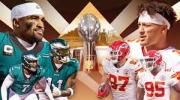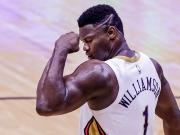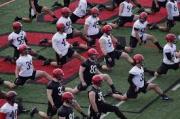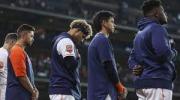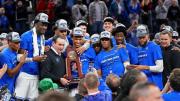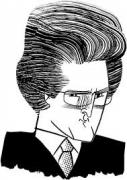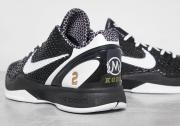Gene Therapy: Time For HBCU Football to Bump Up!

by Gene Clemons
Every season when we arrive at the postseason for college football, the lack of representation for HBCU’s is staggering. Yes, the Celebration Bowl exists but that only spotlights two teams. This season the SWAC was “fortunate” enough to get a representative in the FCS Playoff. Florida A&M was a top 25 team and because of the way the first round is set up, not only did they have to go on the road, they were given a difficult first round opponent because of proximity. Meanwhile Holy Cross and Sacred Heart were able to play each other and neither one of them were ranked. The disrespect for HBCU programs in the FCS Playoffs is a yearly tradition which sparked the creation of the Celebration Bowl but it is just not enough. There's not enough exposure and nowhere near enough revenue generated through sponsorships and television rights.
At the Division 2 level it is even worse because there are no automatic bids. So the CIAA and the SIAC have been consistently squeezed out of playoff slots. This year Savannah State had a great season and didn't get a bid to the postseason. Albany State and Bowie State were the only representatives from HBCU's and they were both put against D2 playoff staples.
Without much in the way of postseason representation how do these teams get to prove their mettle when the most eyes are on them? Recruiting the best and brightest has been a mission that Coach Prime has rejuvenated and we can already see the results rippling throughout the landscape. But regardless of what is said, how can you tell a student to turn down a scholarship to Ole Miss or Miss State to go to Jackson State. It is hard enough to get them to choose the Tigers over Southern Miss. At the end of the day the SWAC and MEAC both are FCS conferences and therefore considered lower than FBS programs. So that is always the trump card FBS teams play when recruiting the best. At the lower level they use playoff berths to out recruit HBCU programs. Because they can not attract the best talent the teams lose and then it becomes a self fulfilling prophecy and it is all recycled and used to continually paint HBCU programs in a negative light.
So what happens when a team begins to win? You would think everything would open up for them but unfortunately the preconceptions still exist and it is almost impossible to shake unless you do something to shake it. You have seen in recent years HBCU programs leave HBCU conferences with the belief that inclusion would allow them to further thrive but it has not taken shape. Storied programs like Tennessee State, Hampton and North Carolina A&T are treated as if they don’t belong in their new conferences.
For years despite the product on the field fans have flocked to HBCU games. The pageantry that is supposed to surround college football is alive and well at HBCU’ s everywhere. The attendance numbers at many HBCU games rival or even eclipse those of teams in the Group of Five at the FBS level. The pageantry and fanfare at programs like Grambling, Southern, FAMU, Jackson State, Alabama State and so many more can make a tailgating situation outside of your favorite G5 school look like a mere picnic. After all, HBCU games are not just limited to the game itself. It is the night before and the night after. It is a true weekend experience when you talk about the football season at an HBCU. So why should the SWAC as the number one conference in attendance in the FCS subject itself to the Orphan Annie treatment at the hands of a lesser level. It is time to bump up and while doing so create a system that dramatically closes the gap between the FBS PWI and the new FBS HBCU’s.
So how would it work? The college football landscape is changing and now is the time to jump up. It's not like the FBS is full of traditional historic conferences. Many have only been around for a short time so adding another conference would not hurt. Especially when that new conference would bring in attendance numbers better than the MAC. The SWAC has the most teams ready to jump to the FBS based on the teams that we've seen make the move recently. The conference would take a contingency of teams from all of the HBCUs and create a super conference of 16 teams divided into two divisions.
The new FBS SWAC would be: Jackson St, Alabama St, Alabama A&M, Grambling, Southern, Alcorn St, Arkansas Pine Bluff, Texas Southern, Prairie View A&M, Florida A&M, Tennessee St, Hampton, North Carolina A&T, South Carolina St, Morgan State, and Delaware State.
The new FCS MEAC would include: Bethune Cookman, Mississippi Valley State, North Carolina Central, Howard, Norfolk State, Savannah State, Fort Valley State, Albany State, Morehouse, Miles, Kentucky State, Lane, Bowie State, Fayetteville State, Virginia Union, Virginia State.
The new SWAC as a FBS to schedule a Power Five conference team and not cost them strength of schedule because they played an FCS school. That would allow these HBCU’s to still take guaranteed pay games.. They could then schedule a FCS from the new MEAC and guarantee them a payoff that would help their bottom line. The FCS teams could do the same if they scheduled the remaining D2 schools for a pay game. It would allow every team to increase their revenue and demand a place at the table of the level they are at. It is a "for us by us" philosophy that may never come to fruition. People should ask themselves why it doesn't make sense when we consider that three teams who do not draw nearly as well as some HBCU squads are about to ascend to the FBS with nothing more than hope.
The time is now for HBCU teams. They are raising the bar with coaches who move the needle. Coach Prime has paved the way for Eddie George and Hue Jackson to join the ranks. They have shed light on the other talented coaches already at HBCU programs and that has helped to increase the talent pool attending those schools but that only scratches the surface. They have already begun to position themselves by galvanizing a strong conference. They should not let the train pass them by.
###
Gene Clemons is a Sports Analyst and Contributor to CWN Sports. His weekly column and podcast - Gene Therapy focuses on Sports, Politics and Social/Urban issues.
Read more


